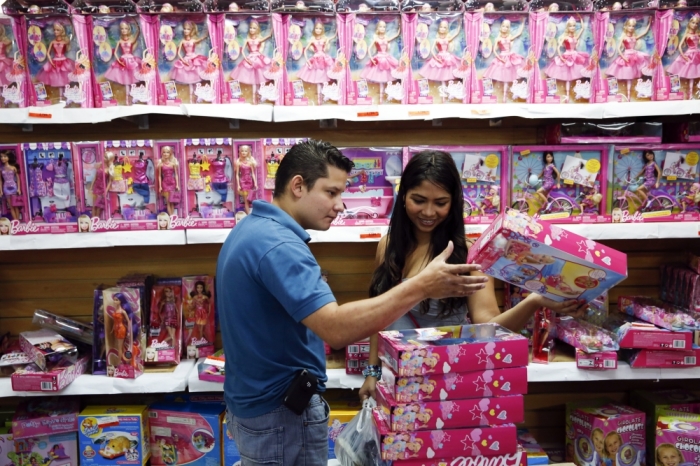California toy stores without gender-neutral sections could face fines under new law

California stores that do not feature a gender-neutral toy selection for kids risk incurring a fine of up to $500, according to a law that will be enforceable in January seeking to reduce what proponents say are harmful stereotypes about boys and girls.
Under AB 1084, retail stores that sell childcare items or toys must maintain a "gender-neutral" section and display what the bill describes as a "reasonable selection" of toys, regardless of whether the products have traditionally been marketed towards boys or girls.
The law signed by Gov. Gavin Newsom in 2021 gives stores a Jan. 1, 2024 deadline to comply. The legislation defines "childcare items" as any product designed or intended to facilitate sleep, relaxation or the feeding of children or to help children with sucking or teething. The bill defines children as minors 12 years of age or less.
Retail stores with more than 500 employees across the state that fail to create a gender-neutral toy area face a $250 fine for a first infraction and a $500 fine for subsequent violations.
"Unjustified differences in similar products that are traditionally marketed either for girls or for boys can be more easily identified by the consumer if similar items are displayed closer to one another in one, undivided area of the retail sales floor," the bill reads.
"Keeping similar items that are traditionally marketed either for girls or for boys separated makes it more difficult for the consumer to compare the products and incorrectly implies that their use by one gender is inappropriate," it continues.
Democratic Assemblyman Evan Low, who sponsored the bill, said in October 2021 that he was "incredibly grateful" to Newsom for signing it.
As The Associated Press reported, Democrats in the state legislature previously attempted to pass similar legislation without success in 2019 and 2020.
Low said that his 10-year-old daughter inspired him to sponsor the legislation after she reportedly asked her mom why certain parts of a store were "off limits" because she was a girl, as AP reported.
"We need to stop stigmatizing what's acceptable for certain genders and just let kids be kids," Low said. "My hope is this bill encourages more businesses across California and the U.S. to avoid reinforcing harmful and outdated stereotypes."
Academics such as Christina Hoff Sommers, senior fellow emeritus at the center-right think tank American Enterprise Institute, have criticized the push to make children's toys gender-neutral, arguing that kids' interests and preferred forms of play are rooted in their biology.
In a December 2012 opinion piece, Sommers commented on a Swedish regulatory group that pressured one of the largest toy companies in Northern Europe — Top-Toy, a licensee of Toys "R" Us — to fix its "narrow-minded" and "outdated" advertisements.
As a result of the pressure, the company released a Christmas catalog that showed little boys playing with a Barbie Dreamhouse and little girls playing with guns and action figures. According to Sommers, one of the problems with this is that boys and girls do not necessarily share the same interests.
The feminist scholar recalled how, 20 years ago, the toy manufacturing company Hasbro tested a playhouse it planned to market to both sexes. While the girls imagined they were caring for their babies in the house, the boys launched a baby carriage off the roof of the playhouse.
"A Hasbro manager came up with a novel explanation: 'Boys and girls are different,'" Sommers wrote.
"They are different, and nothing short of radical and sustained behavior modification could significantly change their elemental play preferences," she continued. "Children, with few exceptions, are powerfully drawn to sex-stereotyped play."
While Sommers agreed that parents and teachers should expose children to a wide range of play, she criticized requiring kids to experiment with different toys, questioning whether this type of "social engineering" is ethical.
Samantha Kamman is a reporter for The Christian Post. She can be reached at: samantha.kamman@christianpost.com. Follow her on Twitter: @Samantha_Kamman




























